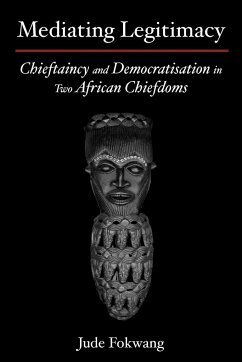This study analyses the effects of democratic transition in two African countries - Cameroon and South Africa - on chiefs and the institution of chieftainship. Based on ethnographic fieldwork, the monograph explores the cultural and socio-political conditions that enabled chiefs to reinvent themselves in the new era of democratic politics despite their status as 'old political actors'. It explores the kinds of legitimacies claimed by chiefs in the new era and the responses of their subjects to such claims, particularly with respect to chiefs' involvement in national politics. The monograph makes a case for the importance of comparative research on chiefs in the era of democracy and the predicaments they face therein. It contends that contrary to exhortations about the incompatibility of chiefs and democracy, the reality is that political transition in both South Africa and Cameroon produced contradictions, creating space and a role for chiefs in a fascinating and negotiated interplay of legitimacies and history.
Hinweis: Dieser Artikel kann nur an eine deutsche Lieferadresse ausgeliefert werden.
Hinweis: Dieser Artikel kann nur an eine deutsche Lieferadresse ausgeliefert werden.








